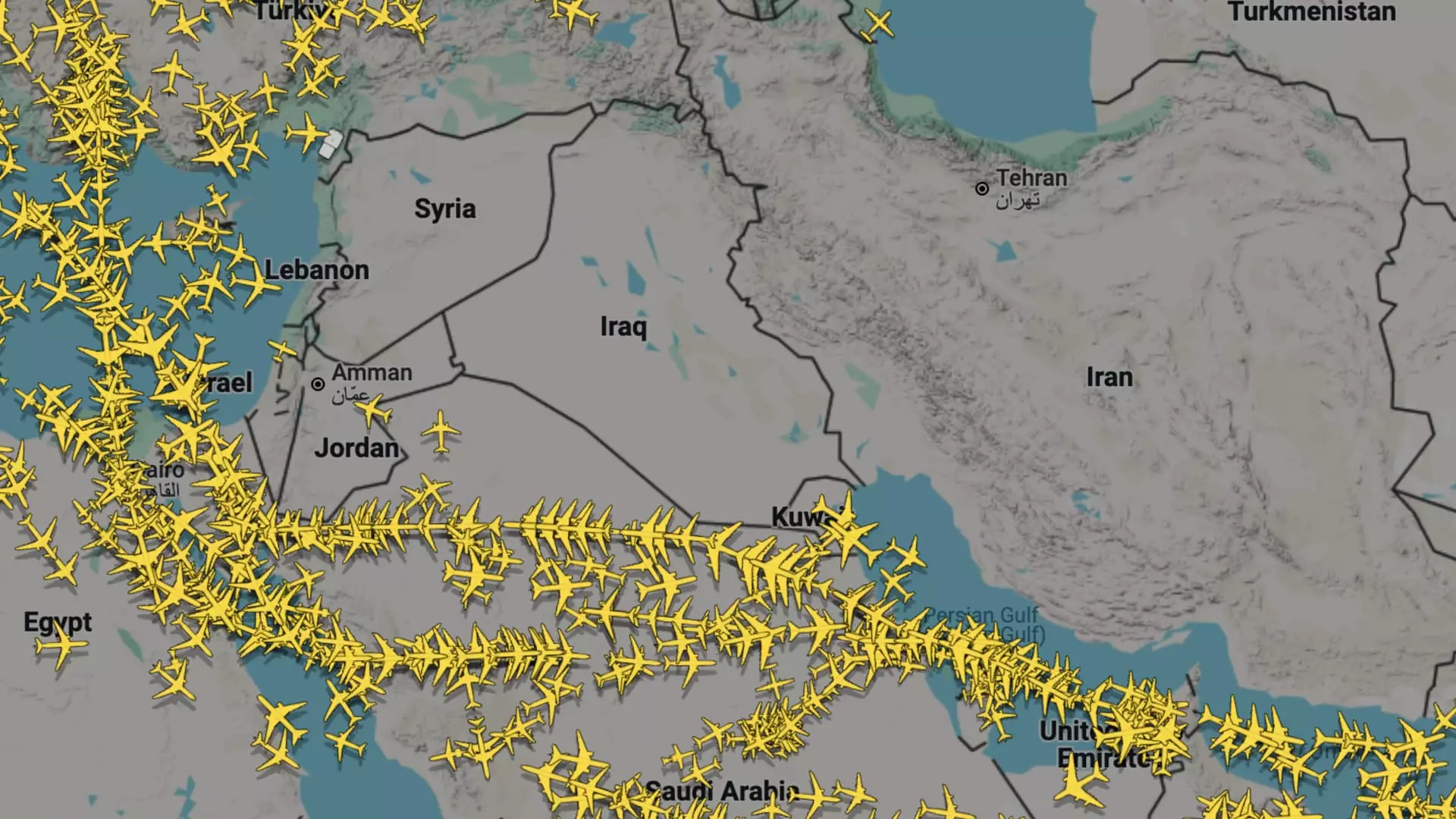Recent escalations in geopolitical tensions have turned the once-thriving skies over the Middle East into a perilous realm for commercial airlines. As Israel unleashed missile strikes on Iran, the fallout was swift and catastrophic—not for the nations involved directly, but for the global airline industry. Major carriers such as Delta Air Lines and United Airlines acted decisively, canceling all flights to Israel and calling back jets mid-flight as they were en route to Tel Aviv. In moments like these, the very essence of aviation, safety, and commerce clashes violently with the harsh realities of warfare.
Ripples Through the Airline Industry
The suspension of El Al flights amid this turmoil paints a somber picture for travelers and businesses alike. It isn’t merely an inconvenience but rather a testimony to the fragility of air travel as a lifeline in today’s interconnected world. The Israeli airline halted operations indefinitely, leaving travelers stranded and forcing them to navigate a labyrinth of rearrangements under pressing conditions. Warnings against traveling to Ben Gurion Airport add another layer of despair for those intending to reach a place that symbolizes both innovation and culture in an increasingly fraught environment.
Meanwhile, other international players such as Turkish Airlines and budget-friendly Wizz Air followed suit, a clear indication that the ramifications of geopolitical unrest reach far beyond national borders. Lufthansa, too, has echoed these sentiments by suspending operations in not only Tel Aviv but also Tehran, illustrating just how interconnected yet vulnerable the air travel landscape has become.
The Human Cost of Political Gamesmanship
Such decisions, which may seem bureaucratic from a distance, carry profound human consequences. Each canceled flight represents disrupted lives, missed opportunities, and sometimes, heartbreaking separations. The chaos is compounded as airlines scramble to issue travel vouchers and waived change fees—a token gesture that only partially alleviates the stress faced by passengers. What remains glaring is the pattern of airlines retreating when they should ideally be connecting communities and facilitating travel across borders.
Now more than ever, it is crucial for national and international authorities to recognize the weight of their decisions. They must consider not only the geopolitical implications but also the human chain reactions that ensue. This stark reality highlights an urgent need for diplomatic dialogue over military strike resolutions—a call for leaders to reflect on their roles in not just securing borders but also in fostering global interdependence and, dare I say, humanity.
Long-Term Ramifications
In the midst of these upheavals, the airline industry’s struggle reveals a deeper malaise, one that is emblematic of how conflicts overshadow economic rationale. As airlines continue to reroute their flights to avoid conflict zones, the consequences could prove to be long-lasting. Travel costs may rise, schedules may become erratic, and trust in air travel may weaken. With increasing military engagements around the globe, the skies that connect us are ironically becoming spaces of fragmentation. Hence, these unsettling developments challenge us to rethink our priorities and how we can ensure that humanity takes precedent over territorial disputes.


Leave a Reply